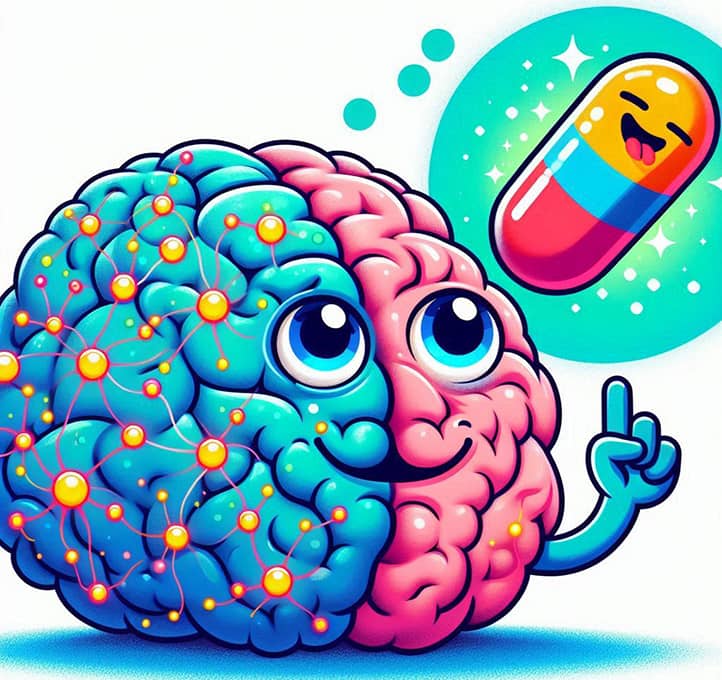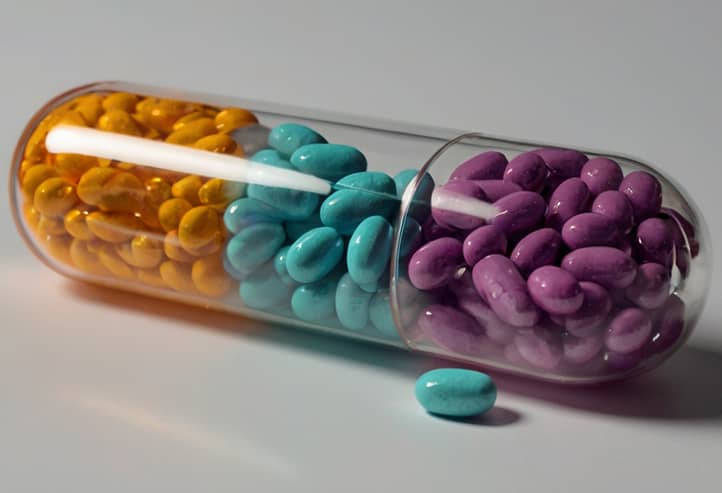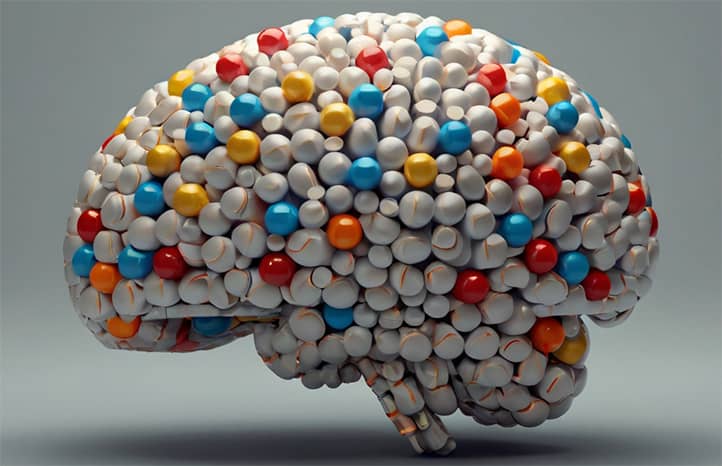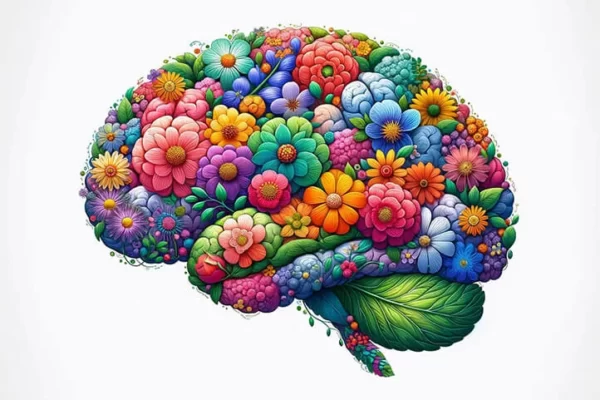The placebo effect is a mysterious phenomenon that has long puzzled scientists and doctors. It represents a positive therapeutic response to an inert substance or procedure that lacks specific therapeutic activity for a given condition. In Latin, “placebo” means “I will please,” or “I will be agreeable.” The term “placebo” was used to describe “dummy” treatments—harmless pills or procedures prescribed to patients merely to please them or to give them a sense of being helped.
The history of placebo research began in the 18th century when doctors noticed that some patients experienced improvement after taking inert substances that contained no active ingredients. However, for a long time, this phenomenon was considered a curiosity and did not receive serious attention in the scientific community.
The situation changed in the 20th century when researchers began to seriously study the placebo effect and its potential mechanisms. Understanding this phenomenon became one of the key aspects in the development of new drugs, conducting clinical trials, and evaluating treatment effectiveness. Moreover, it has had a significant impact on the development of personalized medicine and treatment approaches that take into account psychological and social factors.

A Brief History of Placebo Research
- In the 18th and 19th centuries, doctors used “dummy” treatments to soothe patients and create the feeling that they were being helped.
- The first scientific studies of the placebo effect were conducted in the 1950s by American anesthesiologist Henry K. Beecher, who found that some soldiers who received placebo experienced significant pain relief.
- In the 1960s, randomized placebo-controlled trials began to develop actively to evaluate the effectiveness of new medications.
- In the 1970s, scientists began paying more attention to studying the neurobiological mechanisms underlying the placebo effect, using the latest brain imaging techniques.
- Today, extensive interdisciplinary research is being conducted, bringing together specialists from various fields such as medicine, neurobiology, psychology, sociology, and ethics.
The Importance of Understanding the Placebo Effect
- Controlling for the placebo effect in clinical drug trials is a necessary condition for obtaining reliable results and assessing the true effectiveness of medications.
- Studying the placebo effect helps better understand the role of psychological and social factors in the treatment of diseases, such as patient expectations, interaction with the doctor, and the therapeutic alliance.
- Understanding the mechanisms of placebo opens opportunities for the development of personalized approaches in medicine that take into account the individual characteristics of the patient and their psychological state.
- Research in the field of placebo contributes to the development of ethical norms and principles for the use of placebo in clinical practice and scientific research.
- Studying the placebo effect can help optimize healthcare costs by providing alternative or additional treatment options in certain cases.

Mechanisms of Action of the Placebo Effect
Despite extensive research, the exact mechanisms underlying the placebo effect are still unclear. Nevertheless, scientists have identified several key factors that may contribute to its manifestation. These factors include psychological, neurobiological, and behavioral aspects.
Psychological Factors
One of the main psychological factors influencing the placebo effect is the patient’s expectations. If a person believes that the treatment will help them, this belief can trigger a cascade of physiological processes that contribute to improved well-being. The stronger the expectation of a positive outcome, the higher the likelihood of the placebo effect manifesting.
In addition, trust in the doctor and their authority can also play a role in enhancing the placebo effect. If the patient perceives their doctor as competent and trustworthy, it can increase their expectations and belief in the success of the treatment, even if it is based on a placebo.
Research shows that even small changes in the doctor’s behavior, such as a warmer and more empathetic tone of communication, can increase the patient’s response to the placebo. This underscores the importance of the therapeutic alliance and the quality of interaction between the doctor and the patient.
Neurobiological Processes
Using modern brain imaging methods, such as functional magnetic resonance imaging (fMRI) and positron emission tomography (PET), scientists have been able to better study the neurobiological processes underlying the placebo effect.
It has been found that taking a placebo can cause changes in the activity of certain brain areas associated with pain perception, emotions, reward, and cognitive control. In particular, placebo stimulates the release of endogenous opioids (such as endorphins) in the brain, which have analgesic and calming effects.
Additionally, placebo can influence the activity of neural networks involved in processing sensory information, emotional regulation, and cognitive processes such as expectations and perception. These changes contribute to the modulation of subjective symptom perception and improved well-being.
The Role of Classical Conditioning
One of the theories explaining the placebo effect is the concept of classical conditioning. According to this theory, if a patient repeatedly takes an active drug that causes a certain therapeutic response, their body can learn to associate taking the pill or procedure with the expected effect.
In the future, even when taking an inert “dummy,” the patient may experience a conditioned response that triggers physiological processes similar to those observed when taking the active drug. This partly explains why some patients experience improvement even after taking a placebo.
For example, if a person regularly took a pain-relieving drug for headaches and it helped relieve the pain, their body might develop a conditioned reaction to the act of taking the pill itself. Thus, when the patient takes a placebo, their brain “expects” an analgesic effect and triggers the corresponding physiological processes, such as the release of endogenous opioids.
This theory is supported by experimental data showing that patients who previously received active treatment have a stronger placebo effect compared to those who never took medications to improve their condition.
Genetic and Personality Factors
Individual differences in susceptibility to the placebo effect may also be related to genetic and personality factors. Studies suggest that certain genes associated with neurotransmitter systems and receptors can influence the strength of the placebo response.
For example, links have been found between the placebo effect and polymorphisms of genes encoding opioid, dopamine, and serotonin receptors. These findings suggest that individual genetic variations may partly explain why some people are more susceptible to placebo than others.
Additionally, certain personality traits, such as optimism, trust, and the ability to empathize, may also be associated with a stronger placebo effect. People with such traits are more likely to develop positive expectations and form a strong therapeutic alliance with their doctor, which, in turn, can enhance the placebo response.

Applications of the Placebo Effect
The placebo effect has been observed in the treatment of various diseases and conditions, especially those that largely depend on the patient’s subjective perception of symptoms. Some of the most studied areas of placebo application include the treatment of pain syndromes, depression, and anxiety disorders, as well as use in research on new drugs.
Pain Syndromes
One of the most common applications of placebo is in the treatment of chronic pain. Research shows that some patients with various types of chronic pain, such as back pain, osteoarthritis, migraines, or fibromyalgia, experience significant symptom relief when taking a placebo.
This effect is associated with the release of endogenous opioids and changes in the activity of neural networks involved in processing pain signals. In addition, patient expectations and their belief in the effectiveness of the treatment play a key role in modulating pain perception.
It is important to note that placebo should not be considered a replacement for traditional methods of chronic pain management, but rather as an additional tool that can be used in conjunction with other therapeutic approaches.
Depression and Anxiety Disorders
The placebo effect is also observed in the treatment of certain mental disorders, such as depression and anxiety. In clinical trials of antidepressants and anxiolytics, placebo control is often used to assess the true efficacy of the drug. It has been found that some patients taking placebo also experience symptom improvement.
It is assumed that the placebo effect in the treatment of depression and anxiety may be associated with changes in the activity of neural networks that regulate emotional states and cognitive processes, as well as an increase in the levels of neurotransmitters such as serotonin and dopamine.
However, it is important to note that placebo is not an effective treatment for severe forms of depression or anxiety disorders that pose a risk to the patient’s life. In such cases, appropriate medication and psychotherapeutic care are required.
Use in Research on New Drugs
Placebo-controlled clinical trials are the gold standard in evaluating the safety and efficacy of new drugs. In such studies, one group of patients receives the drug being tested, while the other receives a placebo. Comparing the results between these groups allows researchers to determine whether the observed therapeutic effect is due to the active substance and not other factors such as the placebo effect or the natural course of the disease.
Using placebo in the control group is an important tool for ensuring the reliability and validity of clinical trials, helping to minimize the influence of subjective factors and other variables that could distort the results of the study.
However, there are certain ethical considerations and limitations regarding the use of placebo in clinical trials, especially when effective standard treatment exists for the disease. In such cases, the new drug is usually compared to standard therapy rather than placebo to avoid depriving patients of access to existing effective treatments.
Using placebo when effective standard treatment is available can be considered unethical, as it exposes patients to the risk of not receiving the necessary therapy. Therefore, in such situations, preference is given to comparing the new drug with already proven active treatment.
Nevertheless, in cases where effective standard therapy is absent or where the condition does not pose an immediate threat to the patient’s life, the use of placebo control can be justified and ethically acceptable, provided that the principles of informed consent and participant safety are strictly followed.

Ethical Aspects of Using Placebo
The use of placebo in medicine and scientific research raises a number of ethical questions and debates. On the one hand, a placebo can benefit some patients, especially in the treatment of conditions that strongly depend on subjective symptom perception. On the other hand, the use of placebo without the patient’s knowledge can be seen as a violation of the principle of informed consent and as undermining trust between doctor and patient.
Use of Placebo in Clinical Trials
In clinical trials of drugs, the use of placebo control is regulated by strict ethical norms and guidelines. Studies must be approved by ethical committees, and patients must give informed consent to participate in the study, which clearly states that they may receive a placebo.
However, as mentioned earlier, there are certain exceptions where the use of placebo may be unethical, such as when there is an effective standard treatment for a disease or when there is a high risk to the patient’s health. In such cases, the new drug is compared with the standard therapy, not with placebo.
Additionally, in some situations, special methods such as “double-blinding” or the “double-blind method” are used, where neither the patients nor the researchers know who receives the placebo and who receives the active drug. This helps minimize the influence of subjective expectations and biases on the study results.
Informed Consent of the Patient
In clinical practice, the use of placebo without the patient’s knowledge is a controversial topic. Some doctors believe that in certain situations, the use of placebo can be justified if it does no harm to the patient and may bring benefits. However, other medical professionals adhere to the view that this violates the principle of informed consent and undermines trust between doctor and patient.
An alternative approach is “open-label placebo” or “placebo without deception.” In this case, the doctor honestly explains to the patient that they are prescribing an inert substance, but there is a possibility that it may help due to the placebo effect. This approach allows respect for the patient’s autonomy and their right to informed consent.
Research shows that even with open-label placebo, some patients experience a positive effect, although less pronounced than with “deceptive” use. This indicates that expectations and belief in the potential benefit of placebo play a role, regardless of whether the patient knows they are receiving an inert substance.
Risks of Using Placebo Without Patient Knowledge
The use of placebo without patient knowledge can have negative consequences, such as:
- Violating the principle of informed consent and the patient’s right to full information about their treatment.
- Undermining trust between doctor and patient, which can negatively affect the quality of interaction and therapeutic alliance.
- Possible worsening of the patient’s condition if the placebo does not provide therapeutic action and active treatment is delayed.
- Ethical and legal risks for the doctor in the event that the fact of using placebo without the patient’s consent is disclosed.
Additionally, there is a concern that widespread use of placebo without patients’ knowledge may lead to a general decline in trust in the medical system and doctors, which may negatively affect people’s willingness to follow medical recommendations and adhere to prescribed treatments.

The Placebo Effect in the Context of Modern Medicine
In modern medicine, the placebo effect is not viewed as a curiosity or side effect but as an important factor influencing treatment outcomes. Understanding the mechanisms of placebo and its potential use opens up new opportunities for improving the effectiveness of therapy and enhancing the quality of medical care.
The Role of the Doctor and Therapeutic Alliance
Studies show that the interaction between doctor and patient, as well as the quality of the therapeutic alliance, play a key role in the manifestation of the placebo effect. Doctors who show empathy, attentiveness, and strive to build trust with patients can contribute to enhancing the placebo response and improving treatment effectiveness.
Moreover, the doctor’s authority and confidence in the prescribed treatment can influence the patient’s expectations and, consequently, the placebo effect. This underscores the importance of medical communication and interpersonal skills for doctors.
Specialists recommend that doctors use various strategies to strengthen the therapeutic alliance, such as active listening, showing empathy, providing clear and understandable explanations, and involving the patient in the decision-making process about treatment. These approaches help increase patient expectations and trust, thereby enhancing the potential placebo effect.
Potential of Placebo for Reducing Healthcare Costs
The use of the placebo effect can potentially reduce healthcare costs by reducing the need for expensive medications and procedures. For example, in the case of some mild or moderate conditions that strongly depend on subjective symptom perception, the use of placebo combined with therapeutic alliance and psychological support is sometimes sufficient to improve the patient’s well-being.
However, it is important to note that the placebo effect is not a panacea and cannot replace traditional treatment methods in the case of serious or life-threatening diseases. Additionally, the ethical aspects of using placebo must be carefully weighed, and the principle of informed patient consent must be respected.
Nevertheless, in some cases, where active therapy may be associated with high risks or side effects, and symptoms do not pose an immediate threat to life, the use of placebo in combination with psychological support and other non-drug interventions may become a safer and more cost-effective alternative.
For example, in the treatment of some forms of chronic pain, mild to moderate depression, or anxiety disorders, placebo combined with psychotherapy, cognitive-behavioral therapy, or other non-drug methods may prove to be a sufficiently effective and less costly option compared to long-term use of expensive medications.
Of course, such an approach requires careful patient selection, an individualized approach, and regular monitoring of the condition. Additionally, it is important to strictly adhere to ethical principles and obtain the patient’s informed consent for the use of placebo.
Open-Label Placebo (“Placebo Without Deception”)
In recent years, there has been growing interest in the concept of “open-label placebo” or “placebo without deception.” This approach involves an honest and transparent explanation to the patient that they are being prescribed an inert substance, but there is a possibility that it may have a positive effect due to the placebo effect.
Studies have shown that even with open-label placebo, some patients experience improvement. This suggests that expectations and belief in the potential benefit of placebo play a significant role in its effectiveness, even if the patient knows they are receiving a “dummy.”
The use of “placebo without deception” allows respect for the patient’s autonomy and adheres to the principle of informed consent while also reaping the potential benefits of the placebo effect. This approach is especially relevant for treating conditions strongly dependent on subjective symptom perception, such as chronic pain, depression, or anxiety disorders.
However, it is important to note that open-label placebo should not replace traditional treatment methods in cases where effective medication or non-drug interventions exist. Further research is also needed to better understand the potential and limitations of this approach in various clinical situations.
Personalized Approach Considering the Placebo Effect
Understanding the mechanisms of the placebo effect and individual differences in susceptibility to it opens up new perspectives for the development of personalized medicine. Doctors can take into account psychological and genetic factors that influence expectations and response to placebo to develop more effective and individualized treatment strategies.
For example, when prescribing medications, doctors can consider a patient’s personality traits, such as optimism, trust, and a tendency to develop positive expectations. For patients with such characteristics, the placebo effect is more pronounced, allowing for lower doses of active drugs or the use of milder treatment options.
Moreover, genetic testing of patients for specific gene variants associated with susceptibility to the placebo effect helps doctors better predict the likelihood of a positive response to placebo and adapt the treatment strategy accordingly.
A personalized approach that considers the placebo effect may also include the use of psychological and behavioral interventions aimed at enhancing positive expectations and belief in the success of therapy. For example, the use of cognitive-behavioral therapy techniques, visualization, or even virtual reality to model positive treatment outcomes.

Conclusion
The placebo effect is an astonishing and not fully understood phenomenon, demonstrating the immense power of human beliefs and expectations in the healing process. Understanding the mechanisms of placebo and its potential use opens up new opportunities in medicine and healthcare.
Unfortunately, despite significant progress in studying the placebo effect, many questions remain unanswered. Further research is needed to gain a deeper understanding of the neurobiological, psychological, and social factors influencing this phenomenon, as well as to develop more effective methods for using placebo in clinical practice.
Additionally, it is important to continue studying individual differences in susceptibility to the placebo effect, which may contribute to the development of personalized approaches in medicine and improve treatment effectiveness. Research in genomics, neuroimaging, and personality psychology can make a significant contribution to this area.




